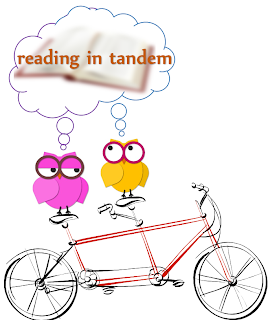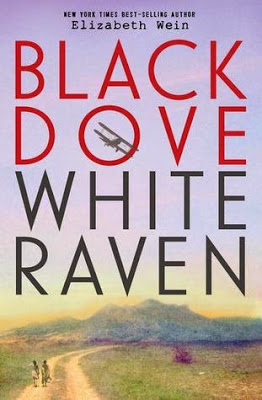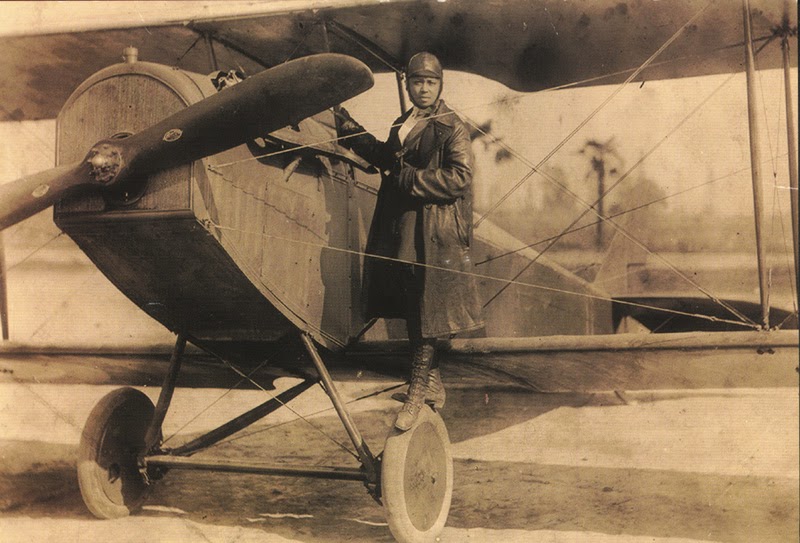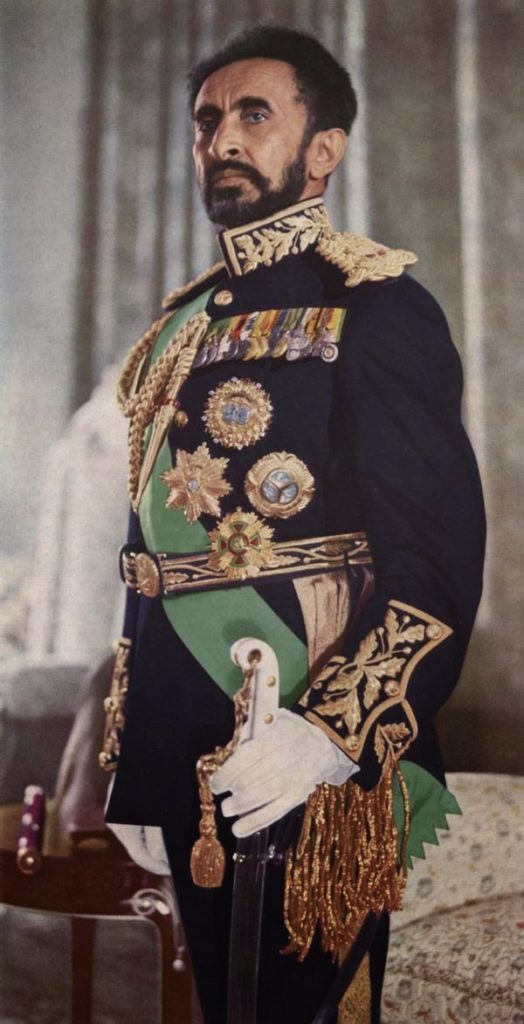 Welcome to another edition of In Tandem, the read-and-review blog series where both A.F. and I give our two cents at the same time. (You can feel free to guess which of us is the yellow owl and which of us is the purple owl…we’re not telling!) We’re discussing the latest book from Elizabeth Wein today, the well-regarded NY Times bestselling YA fiction author, and, in the interest of disclosure, a personal friend.
Welcome to another edition of In Tandem, the read-and-review blog series where both A.F. and I give our two cents at the same time. (You can feel free to guess which of us is the yellow owl and which of us is the purple owl…we’re not telling!) We’re discussing the latest book from Elizabeth Wein today, the well-regarded NY Times bestselling YA fiction author, and, in the interest of disclosure, a personal friend.
Told, as it is, in a series of essays, a letter, and flight logs, the novel is a pastiche of places and histories. Our discussion, to reflect this, will be more thematic than linear summary, so be warned. We also won’t go into more detail than the jacket copy supplies, so you can read without fear of spoilers, if you worry about that kind of thing. This imagination-capturing story is an unforgettable work of historical fiction dealing with airplanes, Ethiopia, and love of country. It’s billed as a historical thriller, a novel put together with a series of other documents – pieces of essays, a letter – detailing lives and purpose – and a need to go home. Join us. We’re…
Two writers,
& Two readers,
With one book.
In Tandem.
A new historical thriller masterpiece from New York Times bestselling and award-winning author Elizabeth Wein

Emilia and Teo’s lives changed in a fiery, terrifying instant when a bird strike brought down the plane their stunt pilot mothers were flying. Teo’s mother died immediately, but Em’s survived, determined to raise Teo according to his late mother’s wishes – in a place where he won’t be discriminated against because of the color of his skin. But in 1930s America, a white woman raising a black adoptive son alongside a white daughter is too often seen as a threat.
Seeking a home where her children won’t be held back by ethnicity or gender, Rhoda brings Em and Teo to Ethiopia, and all three fall in love with the beautiful, peaceful country. But that peace is shattered by the threat of war with Italy, and teenage Em and Teo are drawn into the conflict. Will their devotion to their country, its culture and people, and each other be their downfall or their salvation?
We received copies of this book courtesy of the publisher, via NetGalley. After March 31st, you can find BLACK DOVE, WHITE RAVEN by Elizabeth Wein at an online e-tailer, or at a real life, independent bookstore near you.
LANDS, PEOPLE, PLACES & EMPIRE
ts davis ~ As always, I appreciate a good Elizabeth Wein book, and this one is no exception. This is a biiiig book. A big book. Not so much in terms of … size dimensions, although I guess it’s three hundred and sixty-eight pages, which is about a little longer than average, but it’s a big book because it contains… multitudes. It’s about love. It’s about loss. And it’s about …history. The history of an old, old world that Westerners, really, but mostly Americans – know not that much about. Africa has been misidentified too many times as a single culture, a single story; a country and not a continent. And now here’s this piece of a piece of a place, broken down to give us a little bite — and it’s just not enough. Though I’m not usually a fan of “reader directions,” per se, like glossaries and forewords and the like, I love the afterword by the author, because she gives us a little more history and places the story within context – but lets us know how much more there is to know. I realize that everything I want to know about Ethiopia will never be enough. This is a novel which makes me want to both think, and travel. Maybe even time travel.
…many don’t know the history of Marcus Garvey and Liberia and African Americans in the early part of the 20th century leaving the United States, and longing for a place where no one would mess with them. As an African American now, I have a different perspective – and no real connection to any nation in Africa, as it’s not an empty continent onto which we can impress our stories – it has its own stories, and yes my ancestors were taken from there hundreds of years ago, but stories move on. Their story is no longer my own, and the people who were kind of “deported” to Liberia eventually figured that out… Anyway, I was intrigued by the whole concept – of what Americans would have had a connection with Ethiopia, and how they would have seen it.
sj stevenson ~ The whole idea of Empire as not “constructive” (constructing a vast landscape) but destructive (of what it already there) is something that we are given a vivid glimpse into in this story. Both kids, having grown up pretty much American in some critical ways, are our eyes, through which we see the problematic early-20th-century history of a place in which many nations were still clinging to the last vestiges of the old-style empires. And Ethiopia too was clinging to their own past, their own great empire and history. It never ceases to awe me that they were the last country to retain its independence against outside empirical powers. Really, there is a lot in this book to be inspired by: the accomplishments of women and African American pilots, just for a start. The movement between worlds, opened up and made possible by air travel.
 |
| Bessie Coleman; Photo: Smithsonian Institution |
ts davis ~ Travel seems like it was so much easier back in the 20’s and 30’s – between the British and their Grand Tours and their “empiring” everything in sight, and the Americans “empiring” everything that was left (which wasn’t much, granted), there were wealthy white people colonizing things all over the place. It was really nice in this story to see historical brown faces in the mix, too — some I’d never heard about before, but then some I’d known about for years. I love so much that Bessie Coleman was included in the book as an inspiration for Em and Teo’s mothers, who were at that time just pretty ladies sitting on the sidelines, to become barnstormers.
sj stevenson ~ Yes – I was fascinated by this unusual, adventuresome, determined family who are so dedicated to carving a space of their own, and how Ethiopia fit into that space (and they into IT). “I want to live in a place where people can do what they like, and it is ordinary.” It is amazing to remember that this is still something many are struggling with–the right, the ability to simply live their lives and be who they are. And Africa as a setting is something that many people still see as an undifferentiated, monolithic place. We see the overarching (yet less important) similarities and know nothing about the vast differences between cultures. This book breaks down that monolith and introduces us to distinct landscapes, to concrete places we can feel (Beehive Hill!), to individual human beings and their stories.
MOTHERHOOD, MANHOOD, WOMANHOOD, PERSONHOOD
ts davis ~Em and Teo’s mothers are striking – Delia, because she is game for anything, and makes it work, and Em’s mother, because she appears, at first read, …flighty. There’s really no other word for her – at first read. She has that post-Great War, 1920-30’s enthusiasm thing – everything’s a bright, lovely game! Let me drink champagne out of your slipper! And stand on the wings of my plane – wheee! – It’s like they were all making up for the Great War, and dancing as hard as they could, Gatsby style, and yet, despite her breathless narrative, there was something more to this woman – because she was raised Quaker and a believer in equality? I don’t know. What would make her really befriend this Colored woman, Delia? And what would make Delia really trust her? So much in that relationship – in the barnstorming and the friendship – depended on so little – one tiny point of congruence: absolute trust.
I also loved that though Em & Teo’s mothers – and the shadows they cast – were immensely impacting in their lives that they were still different – they didn’t allow their mothers to overwhelm them, force them into identical roles, etc., though at times it was a near thing!
sj stevenson ~ I completely agree with your characterization of the two mothers. Their personality contrast is fascinating, and yes–making up for the Great War by almost WILLING themselves into a different world, some parts of which were real and other parts fantasy, perhaps. The two women have a fascinating story in and of themselves for sure. Something I didn’t really HAVE to know–but which kept popping into my head time and again–was the nature of their relationship. They were “soul mates,” yes–and I really loved the fact that Grandma characterizes a soul mate as something unique and qualitatively different, not necessarily your life partner or spouse (though they could be) but your best friend in the whole world, someone who understands you better than anybody else. Besides that, though–clearly the moms were best friends, they were partners in flight, they were a team. They are the kids’ parents, and that trumps any other possible aspects of their relationship. The four of them are a family and that is the important part and nothing else matters. There was something profoundly simple about that which I loved.
ts davis ~ As with the friendship of Diana and Anne in ANNE OF GREEN GABLES, there are those people who feel that Elizabeth Wein’s books have lesbian subtexts – that the relationship between the original Black Dove and White Raven is romantic, and maybe it is – but I have also often heard the author rail against the idea that there must be a romance in every single YA – that if you’re not romantic, or if you’re just not there yet or choose not to partake in relationships that there is no story for you. I think that these women could have had a romantic relationship, but I think they were truly and deeply soul mates, in truth, above all and before other considerations. And I find that I am intrigued by that, in many ways, because I don’t know how to do that with girls… most of the female friendships in the Western world are not that trusting. I mean, we get the idea of “Mean Girls” shoved at us in the second and third grades. A misogynist society pits women against each other, as if men are some resource we’re running out of — so we don’t know how to be this kind of friends.
Wouldn’t it be amazing if we could learn?

With the exception of Teo and a few of the Ethiopian guys, in this novel, men – makers-of-rules, bringers-of-war, goers-back-on-deals – don’t fare too well. Historically they were the makers of empire, the writers of history – but this time, they tried to write history on a place which had its own. Even the Emperor Selassie didn’t fare well – his mistakes, in tolerating some things in the name of support in other areas is a political trade-off that happens all the time – this time with fairly disastrous results. And yet, Teo grows up to be a man — a good man. Why? Because he was raised with his eyes open, observing men… and observing women.
I liked the roles in which this novel depicted women. They didn’t always need or want husbands, that they didn’t always have or show maternal caring. Some of them have children and love them traditionally, and others, differently. Despite the hard-and-fast roles for women in that time, this novel showed them crossing continents, and their love – for families, children, partners, friends – surviving, even in an age without electronics, where the only connection comes via airmail. This love doesn’t have to be in the same room to be love. Love doesn’t have to be on the same page, of the same color, of the same family. I think that, for some people, will be a discovery most profound. Some people will not see this mother as a loving mother – but she was, and she remained so… but she also loved herself. That’s not something we see a lot of in fiction — mothers, if they don’t love the character as they want, are uniformly bad. This seems like it opens up so many possibilities. I’m liking the non-binary trend I am seeing in realistic and historical fiction — that there is more than black and white, more than one story, areas of gray. This is, at last, truth.
METAPHOR, IDEOLOGY & MEANING
ts davis ~ “Doing the thing you are scared of is much harder than not being afraid of anything. It is easy to be brave. It is not so easy to be scared and do a brave thing anyway.” Sometimes, breathless optimism wears you out. Sometimes it can feel like recklessness. Then, desperation. As I read this novel, I was both glad NOT to be a mother, and that no one was asking anything adventurous or protective of me, in a time of war.
 |
| Emperor Haile Selassie |
sj stevenson ~ It was so painful to witness Teo being caught up in events in Ethiopia simply due to his parentage, something he had no control over. And yet, in the end, seeing him realize that if people had only ASKED him if he wanted to perform the task, rather than turning right away to their ownership of him, he would have done it freely–Wow.
ts davis ~ Who owns us – what we owe – these things are SO HARD. As an Ethiopian of African American descent, Teo wasn’t a caricature of a black Southerner as is so often the case in YA historical fiction where we see black kids on a plantation or something — he was depicted as a regular, 1930’s kid, someone who wore his sweater backwards and wrote stories and read comic books and flew planes and went to school and had a mom who died — and someone whose life was just as suddenly shot out of the air like a previously soaring bird. He was just… downed. Boom. All that potential, crumpled up and ricocheting off the edge of the garbage can. Doomed by history. And even in the calmest manner, the book doesn’t shy away from this: “Are we important, or just valuable?”
Part of me – cynical, person-of-color me – was really mad at Em’s mother and thought, You fools! You walked him right into this snare! And again, this idea is reflected by Em: “Everything is all your fault. You are our momma, and you are supposed to protect us.”
I like the way the book talks about that ownership, though — how it is something which just grows with you, like the cells with which you were born. That inevitability of Teo and Ethiopia meeting up in negative ways felt a lot like how inescapable everything has been, since last summer, about all the racial violence and tension just floating in the air… it owns you, in a way, even if you don’t think you know or care about it… because it’s written on your skin, it’s a birth…debt, instead of a birthright. You, by virtue of your birth, are owned by this faceless THING and you can’t escape it — “The whole way out, White Raven worried about how they were going to get rid of Black Dove’s invisible chains without hurting him any more.” The metaphor in that story that Em and Teo wrote together is just kind of mind-blowing. Invisible chains. It’s what shackled Teo at every turn. At every turn. That realization within the narrative was, for me, just huge.
STORY & STRUCTURE
sj stevenson ~ I wasn’t entirely absorbed at first by the narrative format, but once the story got going, as always, the author is a master of using an epistolary storytelling method. And the “Theme for Miss Shore” provoked echoes for me of Langston Hughes’ “Theme for English B” and its honest, self-exploratory, subtly provocative style.
ts davis ~ I love that Hughes piece, so much, and I think it’s a brilliant little leap from that to this. If I could write essays like Em and Teo could when I was a teen, I would’ve been happy… It was a happy-sad thing for me how they wrote stories when they were completely overwhelmed and out of …countenance with the world. When they needed to think. When they needed … a bedtime story themselves, they wrote themselves one. Very poignant, and true-to-life as a coping/comfort mechanism.
sj stevenson ~There is some really awesome stuff in this book about the power and role of story, how we can turn to stories in times of trouble and they will strengthen us for the times when we need to put the book away and ACT. Em and Teo create their own stories, their own alter egos, and find strength in them. They are “maps to help you navigate.” I love that.
ts davis ~ That larger theme is what makes this a crossover, to my mind – and that’s one of the other things I like about the writing of Elizabeth Wein. It’s not like she writes FOR teens, and tries to simplify things, or FOR adults, and tries to write… up, or what have you. She just writes, and tells her true. Honestly, this is not going to be an easy book to read for everyone. It’s like paging through a scrapbook and finding an historical mystery, and putting the pieces together – an essay here, a flight log there, a little bit of backstory, a fragment of history — and then you find this family. And they’re real. And they’re vital. And they — change things; maybe even their own hearts and mine, maybe how we think of slavery and freedom and people of color, maybe nothing… but maybe everything. And this is a Wein book. She writes her truth, and I think her books always find their tribe.
As noted, we received copies of this book courtesy of the publisher, via NetGalley; all quotations from the book are from the uncorrected review copy and may not reflect the final version. Thanks for joining us on this journey. And if you’ve read the book, feel free to join in the conversation!